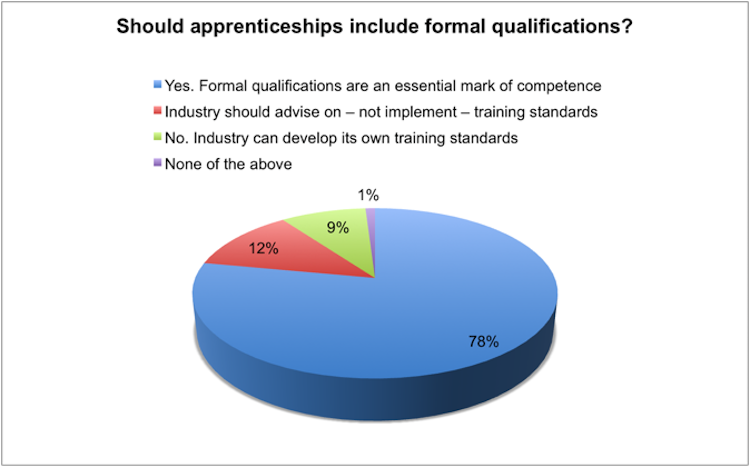By way of context, the Trailblazer Apprenticeship programme was introduced to give employers the power to fashion training according to their needs and in 2017 the Institute for Apprentices was formed to give companies a stronger role in the leadership of the apprenticeship system.
This included the sanctioning of ‘end-point assessments (EPAs)’ to evaluate whether trainees have achieved the required level of knowledge, skills and behaviours deemed competent by employers.
There are those, however, who want to see vocational, industry backed and developed qualifications retained in order to maintain standards, prompting The Engineer to ask:

Of the 590 readers who responded, over three quarters (78 per cent) agreed that formal qualifications are a required mark of competence.
"I think it is important not just for Industry, but also for the apprentices themselves that some form of formal qualification is part of the program," commented reader Matthew D'Arcy. "Receiving a qualification gives a greater sense of achievement, of personal value, to someone. They can see that their worth is recognised and measurable, and sets a baseline from which to develop themselves further."
Of the remaining 22 per cent, just over a tenth (12 per cent) agreed that industry should advise on - but not implement - training standards, nine per cent thought industry perfectly capable of developing its own training standards, and one per cent couldn't find a fit with their opinions, electing instead for the 'none of the above option'.
What do you think? Let us know using Comments below.





Glasgow trial explores AR cues for autonomous road safety
They've ploughed into a few vulnerable road users in the past. Making that less likely will make it spectacularly easy to stop the traffic for...